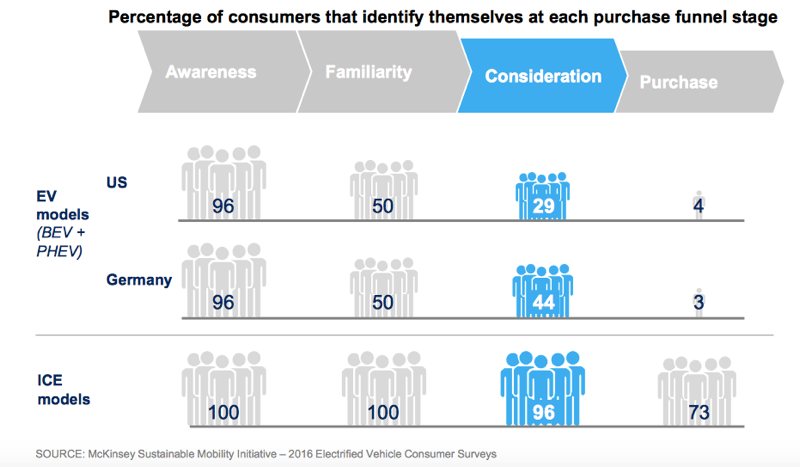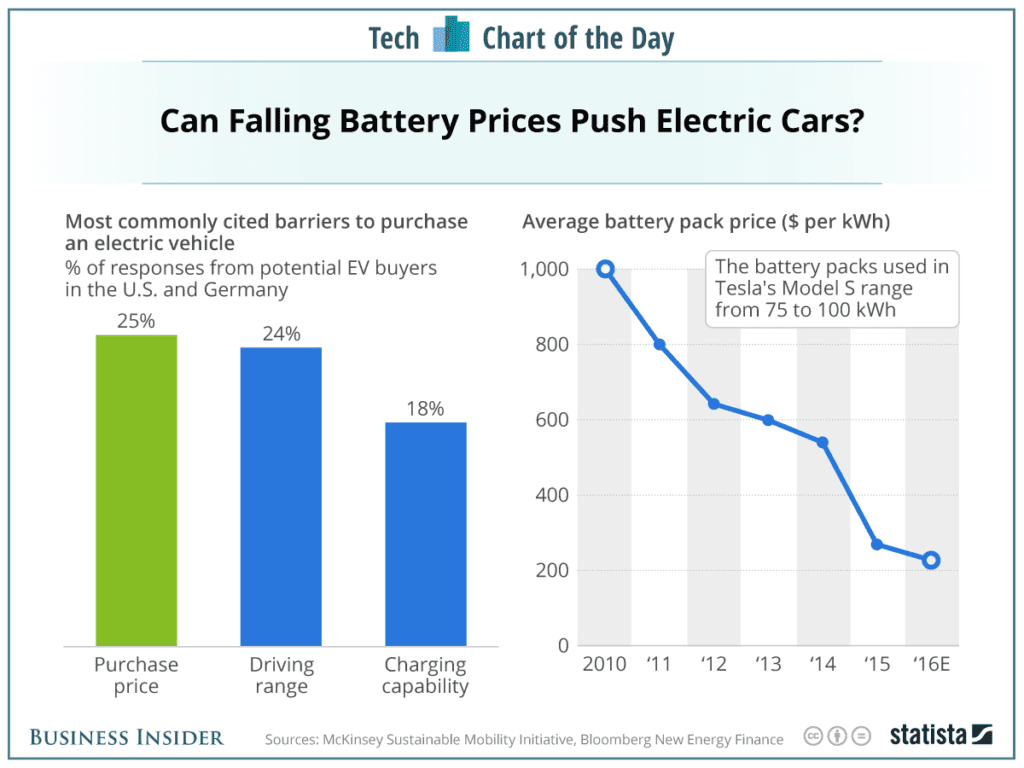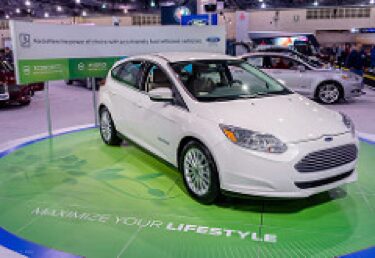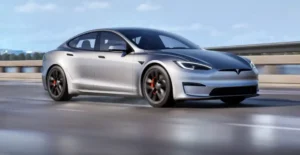In a recent report from McKinsey & Company, called ‘How automakers can drive electrified vehicle sales and profitability’, the authors note the advances in battery tech have helped the average battery pack price go down from about $1,000/kWh to roughly $227/kWh since 2010. The report shows growing consumers awareness but still low sales volumes compared to ICE.

McKinsey says that figure will continue to come down, potentially bringing EVs close to parity with the cost of other cars. This process is already in motion, to an extent, with the likes of the Chevy Bolt and upcoming Tesla Model 3.
This chart published on BI using data from Statista show the drop in selling prices per KWh over the last few years.

While this decrease address one of potential EV buyers’ biggest concerns, EV sales are still low, and many roadblocks remain ahead. The driving ranges on most EVs still aren’t as long as they should be; McKinsey itself notes that only “around half” of consumers in the US and Germany actually comprehend how EVs work, and the number of EV charging stations out in the wild is still low.
The GM Bolt and the Tesla Model 3 will bring increasing change to the mainstream EV world and start to make a meaningful impact on the wider car market.

Bangers Rule the roads
Average age of a car hits 10 years Reports today suggest that the average age of cars on the roads is increasing, surpassing 10 years. This isn’t surprising, given the decline in new car sales and manufacturing. In the UK, new car sales have generally declined since 2019, with a significant drop in 2020 and



